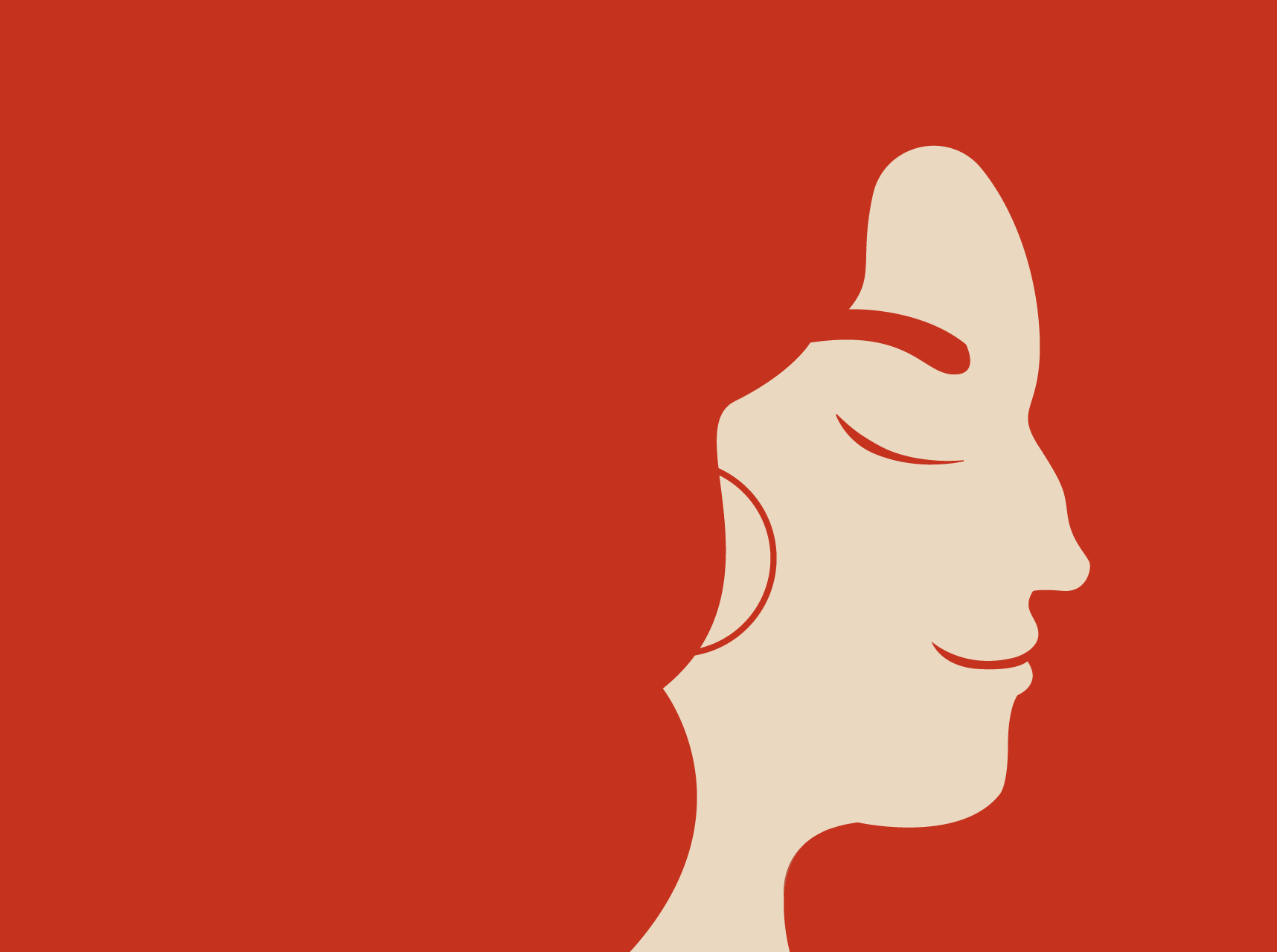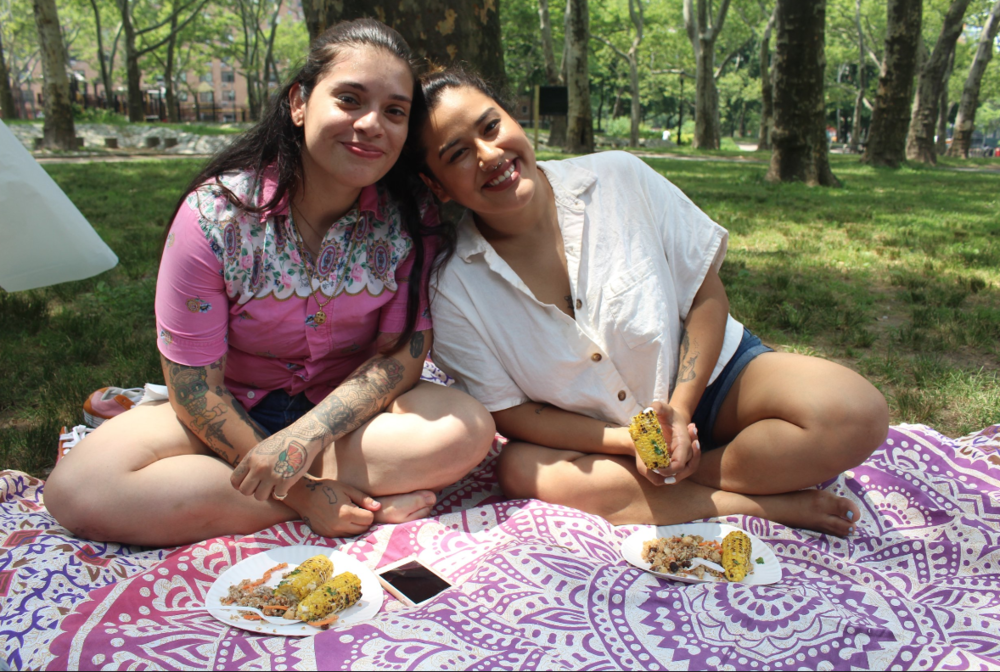Meet Bre Upton: Zine-Maker Extraordinaire
Interview by Angélica Acevedo
Mini-zine designed by Steph Aliaga
“I use my art to explore the ways my presence is being perceived by society…and usually it’s met with a lot of resistance. The fact that I keep going, keep sharing, keep talking, and keep showing up despite those odds is something I hope can make a difference and inspire others.”
Mujeristas Collective (MC): Tell us a bit about yourself!
Bre (B): My name is Bre and I’m a Black, Hawaiian, and Samoan artist mostly known for my zines. I’m originally from North Carolina, but am currently based in Long Beach, CA. My preferred pronouns are she/her.
MC: When did you start making zines? Why did you start making them?
B: I started making zines back in 2017 after getting rejected from several literary magazines I submitted to. I was studying English, Creative Writing at CSULB and was so discouraged to see my peers getting their work published…I didn’t know how else to share my work so I discovered zines and haven’t stopped making them since.
MC: What is it about them that inspired you to teach people how to make them too?
B: Well, my start into learning how to print and bind my own zines wasn’t as easy as I thought it would be. The girls I asked advice from were very gatekeepy and made it harder for me to find the tools and resources I needed to start making my zines. So I had to do a lot of research on my own, and even when I figured it out…those same people would tell me my zines were “wrong” or that I wasn’t doing it the traditional way.
The gatekeeping was absolutely racist and elitist; it was a bunch of older white women who believed in a purist form of zines. They also attributed zines to the riot grrrr stuff, so when I made zines about intersectional feminism or what it’s like for me to navigate the world as a Black and Polynesian woman, they couldn’t relate to it. Instead of getting to know me better, they just totally disregarded my zines.
I know what it feels like to be intimidated by the communities you want to be part of, I know what it feels like to want to express yourself but other people don’t want to help you achieve that. Due to my experiences with gatekeeping early on in my zine journey, I go out of my way to share what I know with others because that’s what zines are about.
MC: Did you ever think you’d make a business out of this and see it become so popular?
B: I actually had my business open for a while before my work gained popularity online. My plan was to always showcase my art online and eventually make it a full-time thing but I had no idea how to do that. I had this dumb job I hated at FedEx office and would just come home after work and post zine and art videos online. I was posting to the void for a while and didn’t get attention until I happened to make a zine tutorial the same weekend that movie, Moxie, came out.
I still haven’t seen that movie, but I guess it’s about a girl that makes zines to expose sexism at her school. I think I posted my tutorial the day before Moxie dropped, so the next morning I woke up to my zine videos going viral. It was an incredible coincidence. That movie generated a lot of interest in zines and because I had so much zine content, my videos were finally getting seen by people who wanted to learn how to make zines too.
People were sharing my zines, telling me they were cool. I don’t think I could have expected that sort of response to my work. I was just always posting my videos and sharing them to a small audience and enjoying that, so when my videos gained popularity it was such a shock.
MC: How do you balance your passion with your business? How do you practice self care and find ways to avoid burnout?
B: My passion for zines don’t really affect my business much, as much of my online shop’s sales come from things that aren’t zines. A lot of people assume I make most of money from my zines but that’s not the case. My business mostly generates profit from products like shirts, totes, and stickers…people do buy my zines too but they are so cheap that I don’t make much profit on them even if I sell a lot! I don’t really believe in making a ton of profit on my zines because I just want to be able to express myself and share that with others.
This is going to sound so cliche and lame probably, but my zines ARE my self-care. Like I said, my business focuses on a lot of other products. I try not to be a “zine shop” that way I don’t ruin the magic of making zines. If I had to pump out zines like I do my totes and shirts and stuff, I’d hate making them. Taking care of myself while running my small business, is making sure my passions are protected. I am absolutely passionate about my art, too, but zines are in a league of their own so if I’m feeling burnt out from making copies or something I just stop making them available. I’ll pull zines off my website or stop circulating them altogether to protect my energy in regards to zines.
MC: You make epic zines with so many different themes. Any tips for beginners on how to get inspired to start their own?
B: Thank you, I really appreciate that! I think my only bit of advice I’d tell beginners on how to get inspired to make their own is to read a lot of zines. As a zine maker, I’m constantly on the hunt for new zines because they open up my world view and shift my perspective. Reading zines by people from all walks of life always inspires me in my own work, so that’s the number one piece of advice I’d give beginners. READ ZINES!
MC: As members of the Mujeristas Collective, we realize art more often than not turns into advocacy for our human rights. Do you see your art as being that too? If yes, how would you say you use your art to send or explore a message?
B: I think that’s beautiful and that’s one of the aspects I admire about your collective so much.
I do believe my art is the same. To be a Black and Polynesian female artist, sharing my voice with the world is me advocating for myself and others like me. Taking up space is always scary for people of color when, historically and even to this day, we’ve been taught to shrink ourselves.
My work may not always be overtly sending a message about the human rights of myself and others, but me being so visible with my art is a type of activism to me. I use my art to explore the ways my presence is being perceived by society…and usually it’s met with a lot of resistance. The fact that I keep going, keep sharing, keep talking, and keep showing up despite those odds is something I hope can make a difference and inspire others.





